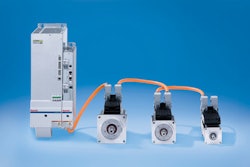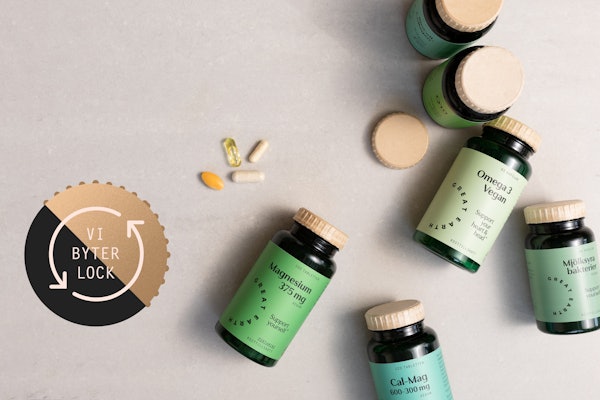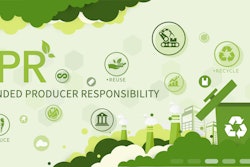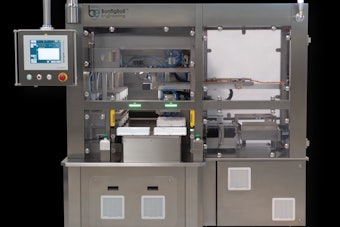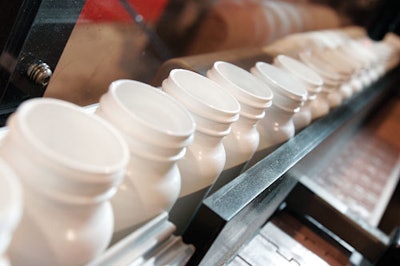
The study noted that marking equipment used for bar coding and data printing was the most frequently mentioned packaging machinery employed at pharmaceutical and nutraceutical facilities. Labeling, case packing/sealing, and conveying/feeding machinery also ranked high among the 71 purchasing respondents at pharmaceutical and nutraceutical firms.
PMMI's Web site listed the following six executive highlights of the market research:
1. Pharmaceutical manufacturing moving to offshore production is greatly tempered by the need for full FDA compliance and the threat of counterfeiting drugs, so much of the production will remain in the U.S.
2. The role of contract manufacturing continues to increase. The most important advantages are cost savings from reducing capital expenditures, flexible line changes, smaller batch runs, supplementing equipment that manufacturers don't have in-house, a reduction in the number of lines dedicated to one product, and getting a product to market more quickly.
3. The move to blister packaging and away from bottles will continue to grow for greater convenience with tablets and capsules. There is a push for products to enhance user convenience, which will drive new and unique delivery systems.
4. The top challenges that packaging machine builders will need to address in the future to satisfy the demand for validation compliance are product traceability, online diagnostic software, vision inspection systems integrated on their machines, and the ability to receive control system upgrades from remote locations.
5. Sustainable packaging requirements continue to increase and challenge package designers to adhere to the demand for more recycling and reducing package weight and volume.
6. Anti-counterfeiting requirements will continue to grow, with a trend toward RFID and slight increases in the use of holograms, color-shifting inks, and covert markings.
The Pharmaceutical/Nutraceuticals Packaging Machinery report is available for $2,500. For more information, e-mail [email protected], or call 703/243-8555.
PMMI's Web site listed the following six executive highlights of the market research:
1. Pharmaceutical manufacturing moving to offshore production is greatly tempered by the need for full FDA compliance and the threat of counterfeiting drugs, so much of the production will remain in the U.S.
2. The role of contract manufacturing continues to increase. The most important advantages are cost savings from reducing capital expenditures, flexible line changes, smaller batch runs, supplementing equipment that manufacturers don't have in-house, a reduction in the number of lines dedicated to one product, and getting a product to market more quickly.
3. The move to blister packaging and away from bottles will continue to grow for greater convenience with tablets and capsules. There is a push for products to enhance user convenience, which will drive new and unique delivery systems.
4. The top challenges that packaging machine builders will need to address in the future to satisfy the demand for validation compliance are product traceability, online diagnostic software, vision inspection systems integrated on their machines, and the ability to receive control system upgrades from remote locations.
5. Sustainable packaging requirements continue to increase and challenge package designers to adhere to the demand for more recycling and reducing package weight and volume.
6. Anti-counterfeiting requirements will continue to grow, with a trend toward RFID and slight increases in the use of holograms, color-shifting inks, and covert markings.
The Pharmaceutical/Nutraceuticals Packaging Machinery report is available for $2,500. For more information, e-mail [email protected], or call 703/243-8555.
Companies in this press-release



